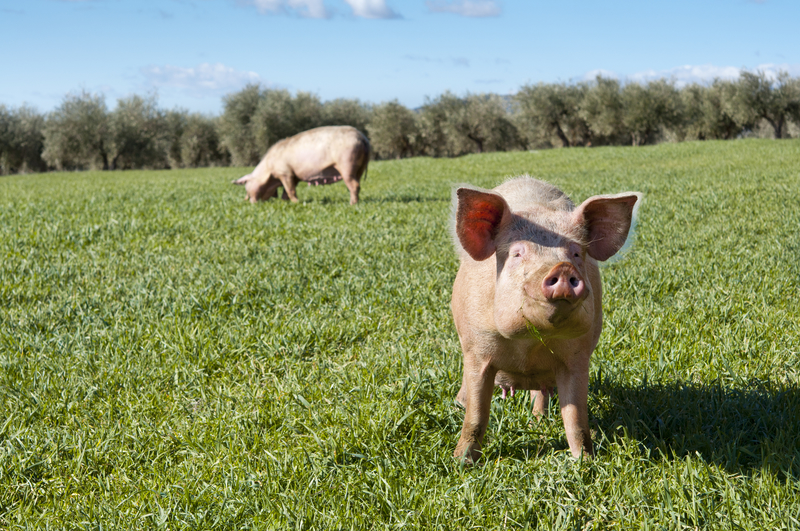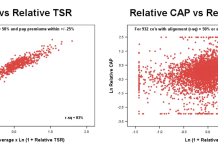Zoe Davies, Chief Executive of the National Pig Association asks where next for the British pig industry and provides a fascinating response
It’s fair to say that the British pig sector has had a pretty rough ride over the last few decades but despite that, it has come out the other side determined to grow. Against a background of poor prices, competition from cheap pork imports and export losses following two notifiable disease outbreaks, the sow herd has halved in size since the late 1990s down to around 400,000 sows. Although only 40% of the pork eaten in the UK is produced here, with the remainder largely imported from the EU, our growing export market is now worth £470 million.
There are, however, many pitfalls looming and clearly, Brexit is one of the biggest. A continued lack of clarity over the future has had a significant impact, affecting confidence to invest, expand and encourage new entrants. Everything has been on hold. Many pig farmers watch with horror as politicians debate permitting pork imports from countries, such as the U.S. with standards far beneath our own. The future will undoubtedly be tough and we must rely on our high welfare credentials and stringent standards to survive.
Significantly, many are still unaware of the potential issue with the trade in cull sow meat. Almost all of this trade currently goes to the EU for further processing. Like mutton, there is no market for cull sow meat in the UK and if there is ‘no deal’ or even a deal that includes lengthy border and inspection checks, the trade would cease as tariffs or delays would render the business unviable. With an average 50% annual herd replacement rate, we are currently at a loss as to what the alternative would be.
Aside from all the politics, another far more insidious threat is lurking and that is African swine fever (ASF). Harmless to humans, this virus is deadly to pigs and has been present in Eastern Europe since 2011. We have watched its inexorable spread west through wild boar and smallholdings, but huge leaps have also been made by people bringing in meat from affected countries and allowing pigs to gain access to it. As a result, ASF is now in Belgium and in all but five Chinese provinces.
The Australian authorities have already identified ASF in imported products and prevented entry. Sadly our border control is nowhere near as stringent as theirs. Needless to say, if ASF makes its way to the UK, the impact would be devastating, not only to pig keepers but to the myriad of businesses that rely on tourism, as large areas of the countryside could be shut down in order to prevent further spread. The more we can spread the message about the threat, the less likely we are to see its arrival.
There are grounds for optimism, however. Our exports to China are now worth £70 million a year and growing. 94% of the pork in the UK is produced to Red Tractor standards, ensuring the pork is high quality, safe and traceable. Although the standards are seen as ‘baseline’ by some, they do in fact go over and above legislation in many areas, not least by requiring regular audits of welfare outcomes on farms, disallowing castration and instructing farmers to record medicine use electronically, which has enabled us to reduce antibiotic use by half in just two years.
Whilst we rightly focus on the issues of the day, consideration of future pig farming generations is also clearly important. Misinformation and propaganda about pig farming is increasingly being used by certain groups taking advantage of the gradual disconnect between people and food production. This has not only contributed to a decline in support for agriculture but has also impacted on future availability of labour.
Agriculture is still sadly seen by many as the territory of straw-chewing ill-educated yokels, despite the seismic shift in the use of technology and the high level of skill required for many roles. Even Michael Gove has recognised agriculture as a STEM industry. The situation has been compounded by Brexit as we face decreased availability of willing workers from the EU and a complete lack of support in schools promoting agriculture as an exciting future career for youngsters, leaving us competing over the ever decreasing pool of people willing to work on farms. The introduction of more practically based T-levels in schools is, therefore, very welcome and we are working with the government to try and shift the deep-seated perception about this wonderful sector.
One of the most positive aspects of all this work is the rapid increase in collaboration, not only within the supply chain but also between the pig sector and the government. There are far more discussions and useful interactions than ever before and I hope that this will stand us in good stead for whatever the future throws at us. Clearly, the better we work together, the more responsive and proactive we can be to ensure a positive outcome for all.
Zoe Davies
Chief Executive
National Pig Association
Tel: +44 (0)24 7685 8780











